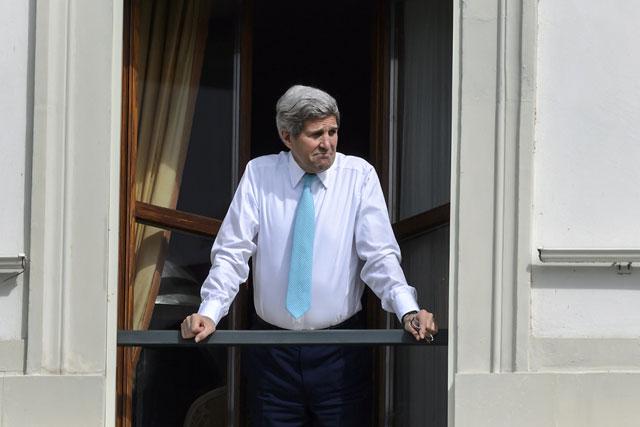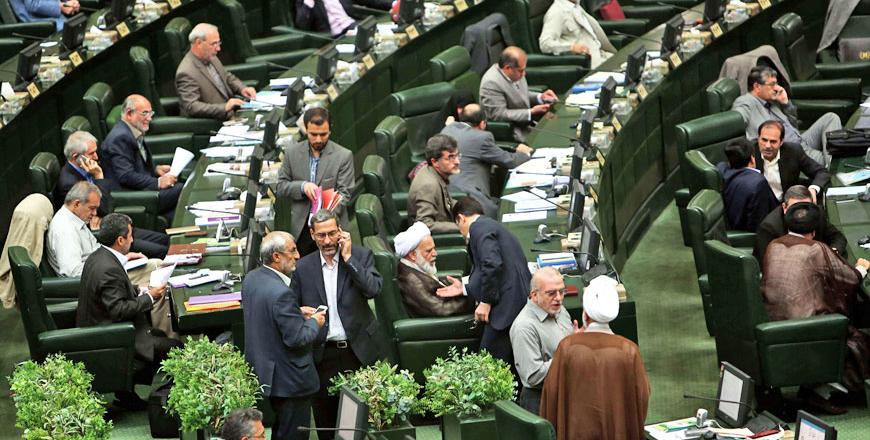You are here
Iran nuke talks go into double overtime
By AP - Apr 01,2015 - Last updated at Apr 01,2015

LAUSANNE, Switzerland — Negotiations over Iran's nuclear programme were heading into double overtime, with the United States saying enough progress has been made to extend the talks into Thursday.
State Department spokeswoman Marie Harf says Secretary of State John Kerry will stay at least until then to continue negotiating.
"We continue to make progress but have not reached a political understanding," she said late Wednesday.
Iran and six powers have been locked in haggling over what an initial understanding should look like for nearly a week, reflecting the significant gaps facing them.
Officials say the intention is to produce a joint statement outlining general political commitments to resolving concerns about Iran's nuclear programme in exchange for sanctions relief. In addition, they are trying to fashion other documents that would lay out in more detail the steps they must take by June 30 to meet those goals.
Negotiations over Iran's nuclear programme appeared headed for double overtime on Wednesday, beset by competing claims after diplomats abandoned a March 31 deadline for the outline of a deal and agreed to press on.
German Foreign Minister Frank-Walter Steinmeier said negotiators were still facing a "tough struggle”, indicating the talks were not likely to end anytime soon. And other officials indicated the efforts, already extended into Wednesday, probably would drag into Thursday.
At the same time, Iranian Foreign Minister Mohammed Javad Zarif accused his country's negotiating partners, particularly the US, of having "defective" political will.
"I've always said that an agreement and pressure do not go together, they are mutually exclusive," he told reporters. "So our friends need decide whether they want to be with Iran based on respect or whether they want to continue based on pressure."
Iran and six powers have been locked in haggling over what an initial understanding should look like for nearly a week, reflecting the significant gaps facing them.
Steinmeier said he hoped that when the talks end "we won't just be reporting about closing gaps" but also will be providing details of agreement on important points. His comment reflected unhappiness with Iran's insistence that the Lausanne talks should end only with a vague statement of principles.
The German said he held out hope that the sides would be able to negotiate a preliminary accord that will let them embark on a new phase of talks aiming for a final deal by June.
Earlier, Iran's deputy foreign minister, Abbas Araghchi, told reporters that if the sides make progress on the text of a joint statement, then that could be issued by the end of Wednesday. But he suggested the statement would contain no specifics.
A senior Western official quickly pushed back, saying that nothing about a statement had been decided and that Iran's negotiating partners would not accept a document that contained no details. The official was not authorised to speak to the negotiations by name and spoke on condition of anonymity.
Araghchi named differences on sanctions relief on his country as one dispute — but suggested some softening of Tehran's long-term insistence that all sanctions on his country be lifted immediately once a final deal takes effect.
He told Iranian TV that economic, financial, oil and bank sanctions imposed by the US, the European Union and others should be done away with as "the first step of the deal”. Alluding to separate UN sanctions he said a separate "framework" was needed for them.
Araghchi has spoken of a similar arrangement before. But both Supreme Leader Ayatollah Ali Khamenei and Iranian President Hassan Rouhani have since demanded full and total sanctions lifting, and his floating of his approach now suggested an Iranian shift.
He also pushed back on US demands of strict controls on Iran's uranium enrichment-related research and development, saying such activities "should continue".
The US and its negotiating partners want to crimp Iranian efforts to improve the performance of centrifuges that enrich uranium because advancing the technology could let Iran produce material that could be used to arm a nuclear weapon much more quickly than at present.
The exchanges reflected significant gaps between the sides, and came shortly after the end of the first post-deadline meeting between US Secretary of State John Kerry, his British and German counterparts and Zarif in the Swiss town of Lausanne. They and their teams were continuing a marathon effort to bridge still significant gaps and hammer out a framework accord.
Eager to avoid a collapse in the discussions, the United States and others claimed late Tuesday that enough progress had been made to warrant an extension after six days of intense bartering.
Related Articles
VIENNA — The gruelling diplomatic marathon towards a historic deal putting an Iranian nuclear bomb out of reach entered the final furlong Tu
TEHRAN — Iran and world powers have made "important progress" towards a final deal aimed at curbing Tehran's nuclear programme in exchange f
ROME — The United States and Iran resumed on Saturday high-stakes talks on Tehran's nuclear programme, a week after an initial round of disc













